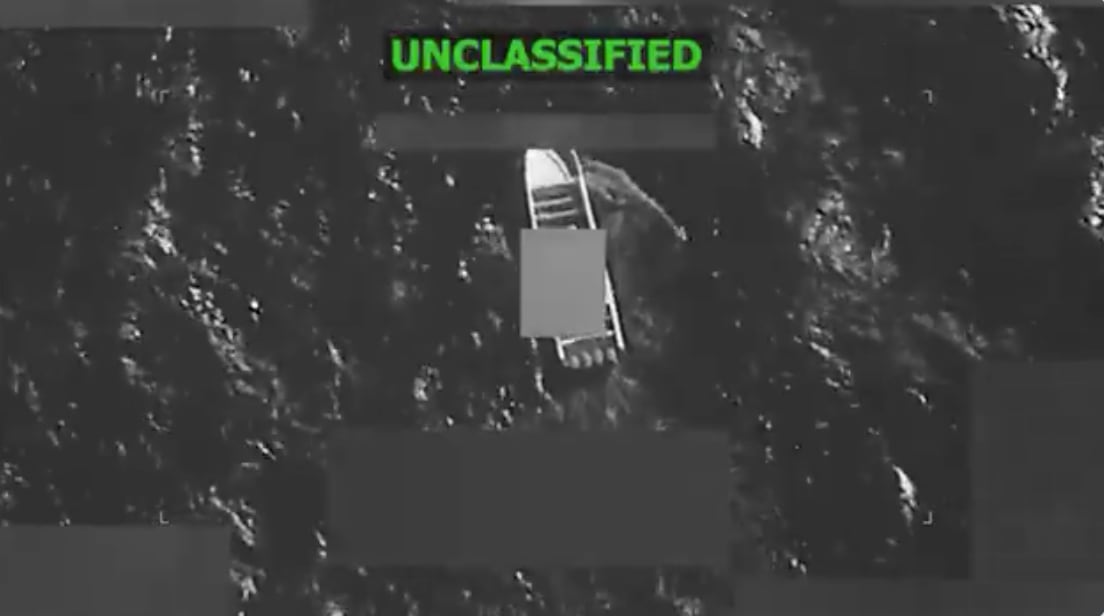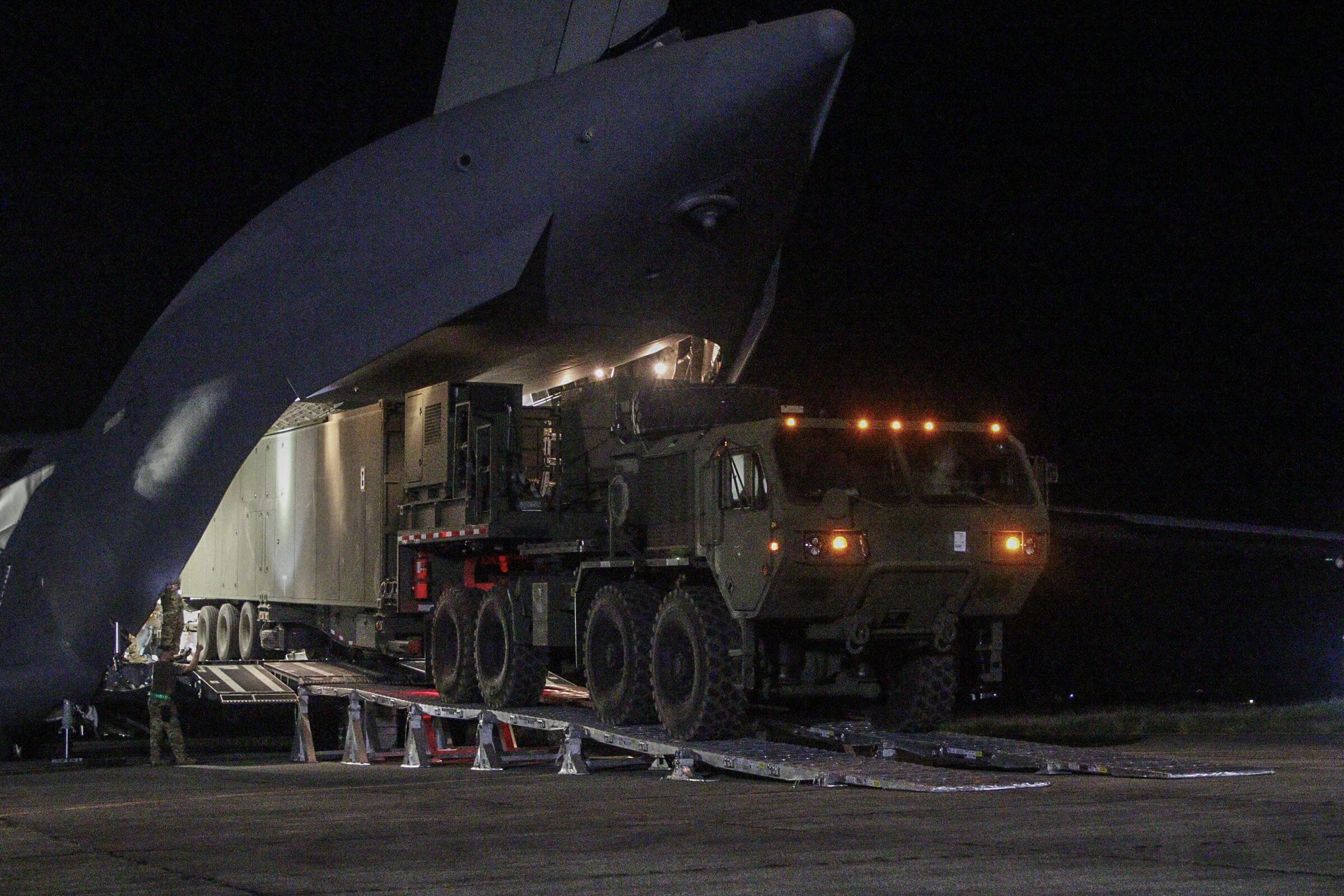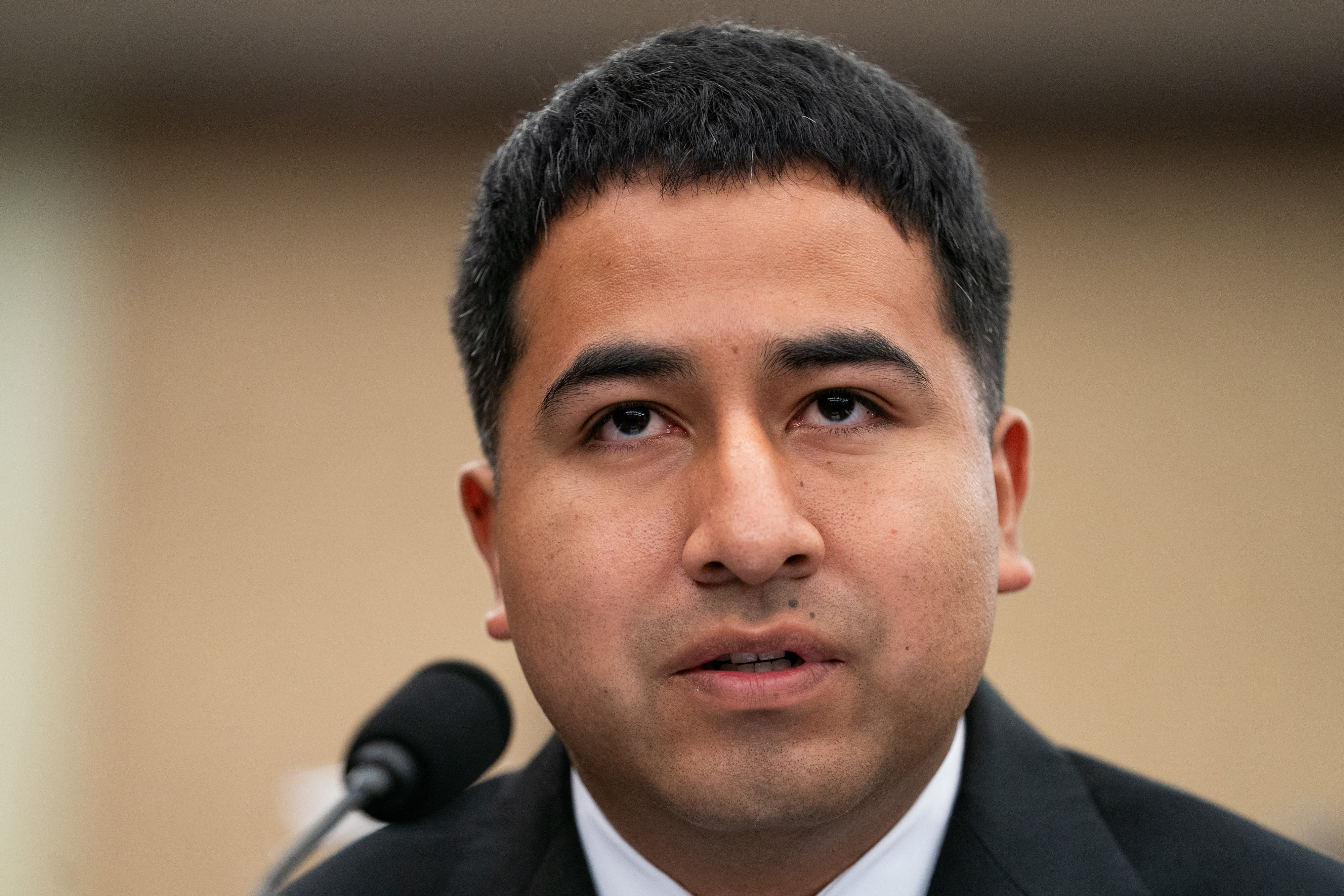Democratic representatives released a video on social media on Tuesday pleading with service members and intelligence officers to reject illegal orders amid ongoing U.S. military strikes against alleged drug-carrying vessels in the Caribbean and eastern Pacific Ocean.
These representatives — who all served in the military or intelligence community — said that the Trump administration was pitting the military and intelligence community against American citizens.
“You must refuse illegal orders,” representatives said in the video. “No one has to carry out orders that violate the law or our Constitution.”
Lawmakers cited the requirement to protect and defend the constitution, which they said was facing threats not just from abroad, but at home too.
President Donald Trump lambasted the video on Truth Social.
“It’s called SEDITIOUS BEHAVIOR AT THE HIGHEST LEVEL,” the post read. “Each one of these traitors to our Country should be ARRESTED AND PUT ON TRIAL.”
The president then posted to his account, or ReTruthed, 16 posts from other accounts that took issue with the video.
Some posts called for lawmakers in the video to be indicted while others seemed to suggest that the lawmakers were asking service members to commit treason or committing treason themselves.
“HANG THEM GEORGE WASHINGTON WOULD,” read one post.
Trump echoed the violent rhetoric.
“SEDITIOUS BEHAVIOR, punishable by DEATH,” Trump said in another Truth Social post.
Individuals within the Trump administration also criticized the video made by Sen. Elissa Slotkin, D-Mich., Sen. Mark Kelly, D-Ariz., Rep. Chris Deluzio, D-Pa., Congresswoman Maggie Goodlander, D-N.H., Representative Chrissy Houlahan, D-Pa., and Congressman Jason Crow, D-Colo.
“Democrat lawmakers are now openly calling for insurrection,” said Stephen Miller, White House deputy chief of staff for policy and homeland security advisor, on X.
Defense Secretary Pete Hegseth followed suit.
“Stage 4 TDS,” Hegseth wrote in an X post.
TDS likely refers to the political phrase “Trump derangement syndrome,” used to describe negative reactions to President Donald Trump.
Since Sept. 2, when the U.S. military began conducting lethal military strikes against alleged drug-carrying vessels in the Caribbean and eastern Pacific Ocean, questions have arisen regarding the potential illegality of the strikes.
RELATED

As of Nov. 17, the Trump administration has disclosed 21 strikes, killing at least 82 people.
The Pentagon has said the strikes are in support of continued counternarcotics efforts.
Rep. Jim Himes, D-Conn., labeled the strikes “illegal killings.”
Sen. Rand Paul, R-Ky., asked for “the evidence linking them to being part of a gang” and for the names of those killed.
While Sen. Tim Kaine, D-Va., sent a Sept. 10 letter to President Trump over concerns that the strikes were conducted without a “legitimate legal justification.”
Concerns allegedly stem from inside the Pentagon as well.
On Oct. 16, Defense Secretary Pete Hegseth announced the retirement of Adm. Alvin Holsey, who supervises the U.S. military’s lethal strikes as commander of U.S. Southern Command.
Holsey will remain in that post until the end of the year.
Though an explanation for the news was not provided, The New York Times reported that Holsey had raised concerns over the U.S. military’s mission in Central and South America and the strikes against alleged drug-carrying vessels.
An NBC News report published Nov. 20 said that the senior military lawyer for U.S. Southern Command expressed his opinion that the lethal strikes were unlawful in August, a month before they began.
His opinion was overruled, however, by officials at the Justice Department’s Office of Legal Counsel.
In their video, Democratic lawmakers appear to be pulling at this thread.
Service members are required to abide by lawful orders and disobey unlawful orders, according to Article 92 of the Uniform Code of Military Justice and the U.S. Manual for Courts-Martial.
Troops that follow an illegal order can be court-martialed and prosecuted.
But according to Sam Howard, a retired Navy captain and former surface warfare officer who commanded three vessels, many service members aren’t privy to the legality of their actions.
“No one at the tactical level is, quite frankly, informed well enough to be able to make that final determination,” Howard told Military Times. “Surely, there are matters of conscience and things like that that go with that. But I think that’s a different story, right?”
Howard said that if a commanding officer of a ship was told to launch a Tomahawk missile, they would be far removed from the legal opinion that goes with that decision.
The directive for the U.S. military strikes has been passed down from Trump, according to many of Hegseth’s X posts.
“At the direction of President Trump,” is a common refrain that has accompanied Hegseth’s posts announcing the strikes.
House Democrats introduced a measure Tuesday that would prevent President Trump from continuing the U.S. military offensive in the Caribbean and eastern Pacific Ocean, The New York Times reported.
Lawmakers specifically planned on invoking the War Power Act, which requires Congressional approval before waging an armed conflict.
Specifically, the measure would necessitate the removal of “United States Armed Forces from hostilities with any presidentially designated terrorist organization in the Western Hemisphere,” unless there is Congressional approval or a formal declaration of war, The Times reported.
President Trump signed an executive order on his first day in office designating cartels as foreign terrorist organizations. The administration, arguing that the U.S. is in a “non-international armed conflict” with drug cartels, has described the strikes as necessary to prevent illicit drugs from entering the United States.
Senate Democrats previously tried twice, in vain, to prevent the Trump administration from using military force against alleged drug-carrying vessels without the approval of Congress.
Riley Ceder is a reporter at Military Times, where he covers breaking news, criminal justice, investigations, and cyber. He previously worked as an investigative practicum student at The Washington Post, where he contributed to the Abused by the Badge investigation.





